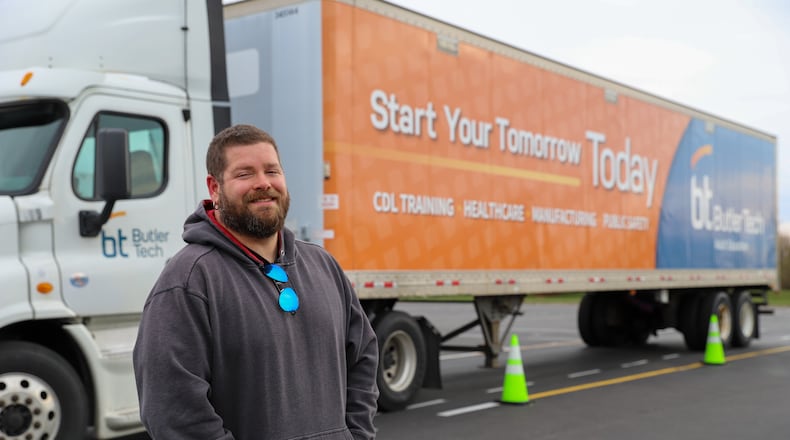The Commercial Truck Driver Student Aid Program, launched in partnership with the Ohio Department of Public Safety, aims to address the growing need for skilled drivers by supporting Ohio residents who commit to completing CDL training programs and working within the state, said Butler Tech officials.
The new funding will be available in the form of grants and loans to eligible Butler Tech Adult Education students who enroll in the CDL program, “helping to alleviate financial barriers and promote career advancement in logistics and transportation.”
“Commercial truck drivers are essential to keeping Ohio’s economy moving, and we are honored to support students who want to enter this critical field,” said Nick Linberg, executive director of strategic planning at Butler Tech.
“This funding not only helps students achieve their career goals but also strengthens Ohio’s workforce and the state’s position as a national leader in logistics,” said Linberg.
A.J. Huff, spokeswoman for Butler Tech – which serves high school and adult students in Butler County, said “we traditionally train about 150 Class A CDL students a year in Butler County and I foresee a 10% growth in enrollment with the grant.”
Ohio Department of Education Chancellor Mike Duffey praised the program’s impact on Ohio’s economic infrastructure saying, “Governor DeWine and the Ohio General Assembly recognize Ohio’s importance in national logistics and shipping.”
“Commercial truck drivers are essential to a thriving economy, and these student awards help fill the pipeline for this high-demand occupation,” said Duffey.
The Commercial Truck Driver Student Aid Program requires in-state students who receive funding to complete their CDL program and reside in Ohio for a minimum of one year following their training. This commitment ensures that the benefits of this program support both Ohio’s economy and its communities, said officials.
Linberg said “this grant offers access to training opportunities for individuals who may not have the financial means to pursue career development.”
“By facilitating this support, we aim to enhance the logistics workforce while empowering families to achieve economic stability.”
About the Author
